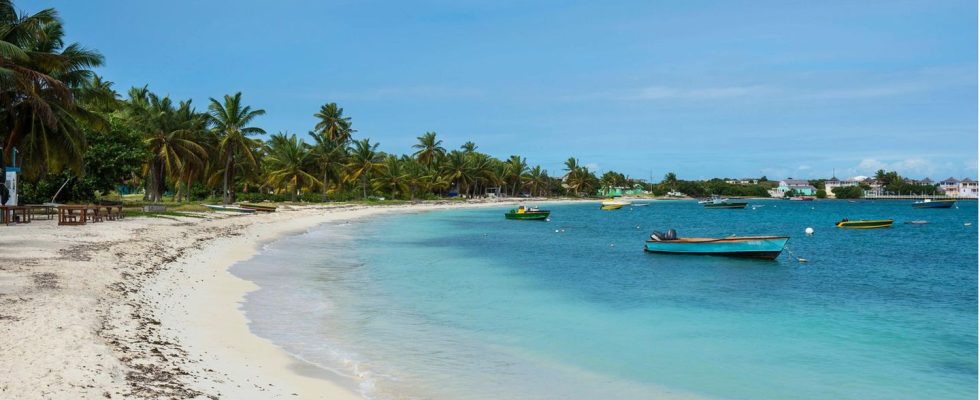Internet address “.ai”
For a Caribbean island with 15,000 inhabitants, the AI boom is becoming a goldmine
Anguilla’s beaches have so far been the most important source of income – now AI is joining them
© Michael Runkel/ / Picture Alliance
Hardly anyone associates the small island of Anguilla with artificial intelligence. And yet the AI boom is flushing millions into the coffers – among others through Elon Musk.
There is a gold mine spread over the small island Anguilla just opening up. The British overseas territory around the main island of the same name is located east of Puerto Rico and lives mainly from tourism. Now, by chance, a new bubbling source of money has opened up: the sale of AI internet addresses.
With the boom in artificial intelligence, they have become much more popular in recent months. And Anguilla has hit the jackpot when it comes to allocating the country extensions for Internet addresses: It assigns the ending .ai, which until recently was not very popular – and thus the English abbreviation for the biggest technology hype of recent years.
Unexpected AI boom by ChatGPT
“Everything has changed since November 30,” Vince Cate recalled to Bloomberg. The IT expert who moved to the island from the USA in the mid-1990s has been managing the now coveted .ai extensions for decades. The date mentioned is not accidental: it is the day ChatGPT was officially released. And with it the day on which the AI companies will break down the doors of the island state.
Since the beginning of December, the number of websites ending in .ai has effectively doubled, he reports. The modern choice of names among the AI start-ups also plays a role here. Whether it’s Character.ai, Stability.ai or Elon Musk’s x.ai: Among AI companies, it’s currently fashionable to delimit the reference to the AI roots with just one point. And then, of course, buying the right URL that corresponds exactly to the company name. However, traditionally named companies such as Facebook, Microsoft or Google have already registered corresponding addresses and redirect them to their own AI offers from there.
Artificial intelligence
Where should the next trip go? According to ChatGPT, these are the ten best holiday countries
Bubbling revenue
The Anguillian Internet is still manageable, according to Cate, almost 287,000 websites use the .ai extension. For the only about 15,000 residents, however, the new business is a real windfall. The endings brought in $7.5 million in 2021, and this year revenues could increase to as much as $30 million, according to Cate. “We even race past it. We didn’t expect ChatGPT,” he openly admits. Actually, only income of 8.3 million dollars was expected from the extension trade for the current year.
What would be just a drop in the bucket for economic giants like Germany or the USA is a considerable sum for the small island: According to the United Nations, Anguilla’s total gross domestic product in 2021 was $281 million. So, in one fell swoop, URL sales account for almost ten percent of the country’s revenue. A welcome additional income in view of the tourism business that collapsed due to the pandemic.
Role model Tuvalu
It remains to be seen how long the source of money will continue to flow. According to Cate, the rapid growth, together with the general hype about AI, has slowed down since March. However, the technology is only likely to continue to grow in the long run, with more companies providing their domains with .ai endings.
The situation is strongly reminiscent of that of Tuvalu. The micro-Pacific state, which is particularly threatened by climate change, was given the extension .tv and has since sold it to television stations and streaming providers such as Twitch worldwide. The island state should take 12 percent of the gross domestic product from this, the “Washington Post” reported as early as 2021. However, the residents can hardly use the services themselves: the Internet on the remote island is simply too weak.
Sources:Bloomberg, U.N., Washington Post


